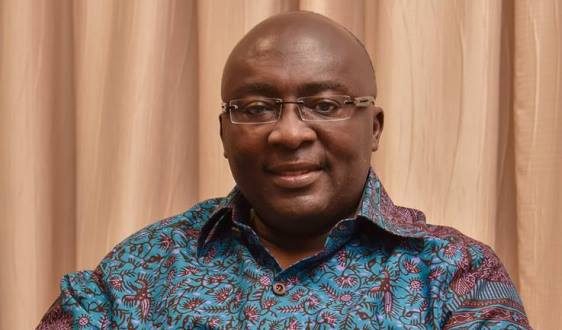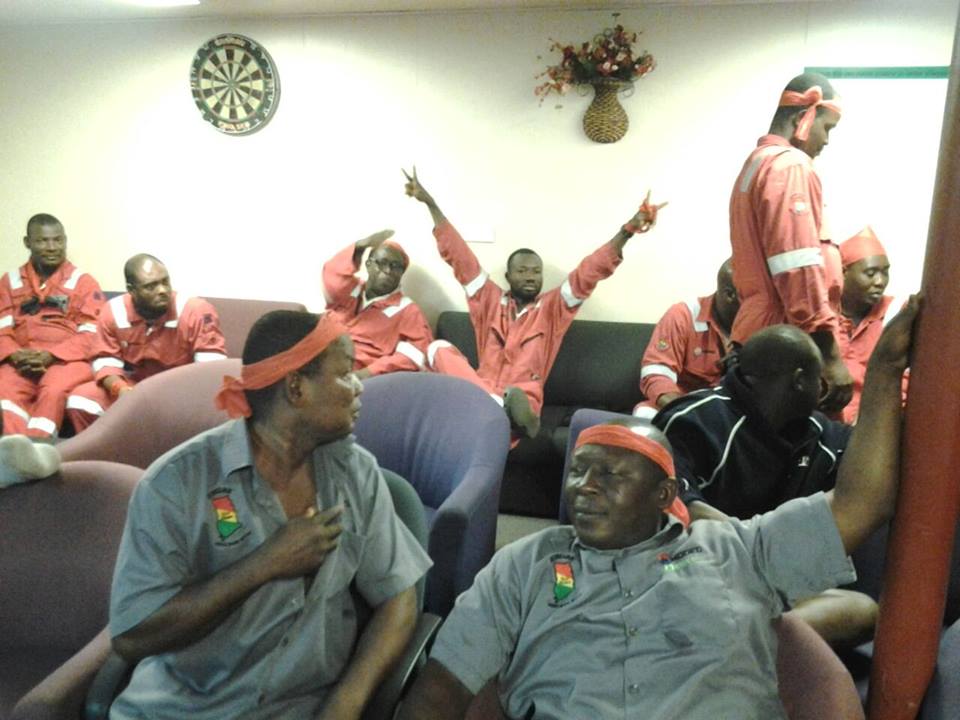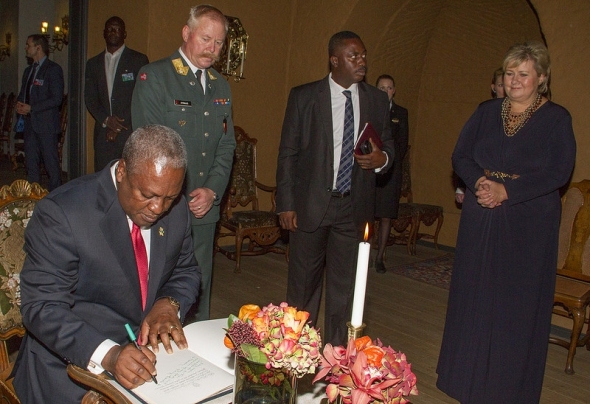Ghana’s Oil cash missing
- Posted on
- Comment
 Controversy is brewing over the handling of revenues generated from the country’s oil fields in the last couple of years.
Controversy is brewing over the handling of revenues generated from the country’s oil fields in the last couple of years.
A report commissioned by the Public Interest and Accountability Committee (PIAC) established under the Petroleum Revenue Management Act, 2011 (Act 815) for the year 2011, has made startling revelations about how the country’s oil resources are not being probably accounted for. This also confirms recent reports by the Africa Centre for Energy Policy (ACEP) that a chunk of the over $541 million revenue received from oil in 2012 was drained by Government due to poor planning.
The opposition New Patriotic Part (NPP) also revealed recently that oil cash amounting to over $1billion accrued from revenue since Ghana joined the league of oil producing countries in 2010 could not be traced.
During the year under review, Ghana’s lifting of crude oil was said to be consistent with Petroleum Agreements, reflecting a royalty of 5 per cent of gross production and a carried and participating interest of 13.75 per cent of net production of the Jubilee Field, leading to revenue of $74, 463, 275.
It however turned out that not all payments expected to go into the Ghana Petroleum Holding Fund were reported on.
Apart from that, surface rentals which were paid into the Government of Ghana Non-Tax Revenue Account in the year 2011 were not accounted for in the Petroleum Holding Fund; and payments from the Saltpond Field were not included.
A similar incident occurred in the year 2012 when PIAC’s report of that year uncovered that an amount of GHc57,536,827, being excess petroleum revenue collected over the Annual Budget Funding Amount (ABFA) in the first half of the year and which was not transferred to the Ghana Petroleum Funds (GPF) in line with Section 23 (1) (a) of Act 815 was not transferred.
Instead, the excess revenues were said to have been allocated to the budget as part of ABFA.
This deferred the investment incomes the funds could have generated for the GPF if the transfers had been made in line with the law.
In its August 2012 report, the Auditor General was said to have noted that $54.9million realized from the sale of a cargo of crude oil in 2011 was not transferred into the Treasury Main Accounts, but into the Dedicated Cash Proceeds Accounts.
This, according to the PIAC, was not regular and could undermine revenue tracking.
Meanwhile, Act 815 of the Petroleum Revenue Act covers all oil receipts and Section 6 of the same Act lists surface rentals explicitly.
Interestingly, the Ghana National Petroleum Company (GNPC) has not yet published an audited report on the use of the funds totalling GH¢315,390,698 received to cover its activities in the year 2011 whilst the Ministry of Finance and Economic Planning (MOFEP) is yet to sign the operational management agreement with the Bank of Ghana for the Ghana Petroleum Funds.
The report equally found inconsistencies within the law which were said to have led to the implementation challenges.
Section 6 of the Petroleum Revenue Management Act describes the Petroleum Holding Fund as gross receipts from all components of petroleum revenue listed in that section which is confirmed by the methodology to be used in establishing the Benchmark Revenue as indicated in Section 17 of the Act.
Section 7 of the Act, however, truncates the amount by setting aside the amounts designated to be paid to the national oil company, therefore creating some amount of confusion over the determination of the Benchmark Revenue.
Upon the publication of the 2012 budget statement, PIAC was said to have drawn the attention of the Minister of Finance and Economic Planning to the inclusion of unanticipated corporate taxes in the Benchmark Revenue and the implication this has on overestimating the Benchmark Revenue and the Annual Budget Funding Amount (ABFA).
This, the report said, could limit transfers to the Ghana Petroleum Funds and lead to what the committee described as ‘premature dependency’ on the Stabilisation Fund when the projected amounts are not realized.
The Public Interest and Accountability Committee has, among others, made recommendations for MOFEP to use the methodology for determining the Benchmark Revenue set out in the law, involving all relevant institutions and ensure the assumptions are certified by reputable independent expert appointed in accordance with the Public Procurement Act, 2003 (Act 663).
This, according to the committee, “will avoid the likelihood of distortions in establishing the Benchmark Revenue and deriving the Annual Budget Funding Amount.”
It also asked MOFEP to take steps to account for the 2011 unaccounted proceeds in the Petroleum Holding Fund in a special report to Parliament and ensure that all receipts are reported on in the future.
In the interest of public accountability and transparency, GNPC has also been asked to publish an interim report on the utilization of the funds it received as part of the appropriation of petroleum revenues in 2011 pending the release of its annual report and audited financial statements.
The committee also recommended that Parliament investigates the matter of the potential overestimation of the Benchmark Revenue for 2012 as raised by the committee and advise MOFEP accordingly.
It was also recommended that Parliament as an institution demands an explanation from the institutions charged with responsibilities under Act 815, the reasons for their non-compliance with provisions of the Act while developing a sanctions regime for violations of reporting requirements in any future amendment of the Act.
Daily Guide










 (Selorm) |
(Selorm) |  (Nana Kwesi)
(Nana Kwesi)